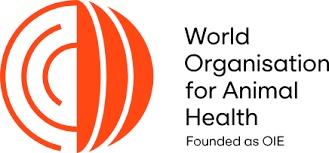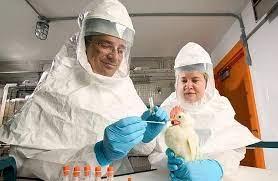 The 90th World Assembly for the World Organization for Animal Health (WOAH), held in Paris May 21st through 25th, included a Forum on avian influenza. The rapporteur for the session was Dr. David Swayne, recently retired as Director of the Southeastern Poultry Research Laboratory and a world expert on avian influenza. His comprehensive review, “Strategic Challenges in the Global Control of HPAI”, highlighted changes in the epidemiology of avian influenza and set the stage for a consideration of vaccination as a component of both prevention and control.
The 90th World Assembly for the World Organization for Animal Health (WOAH), held in Paris May 21st through 25th, included a Forum on avian influenza. The rapporteur for the session was Dr. David Swayne, recently retired as Director of the Southeastern Poultry Research Laboratory and a world expert on avian influenza. His comprehensive review, “Strategic Challenges in the Global Control of HPAI”, highlighted changes in the epidemiology of avian influenza and set the stage for a consideration of vaccination as a component of both prevention and control.
Session One of the Forum dealt with avian influenza intelligence, comprising monitoring, surveillance, detection and prevention. The panel emphasized the dynamic nature of avian influenza and the need to share surveillance data focusing on free-living and migratory birds. The panel recognized the different approaches required for subsistence farms compared to large commercial flocks. The discussion recognized the shortcomings of biosecurity in small commercial farms and backyard flocks and the need for protection based on the contribution of poultry production in low-income nations.

Dr. David Swayne |
The Second Session dealt with response to HPAI with an emphasis on the continuity of operations and the potential benefits from vaccination. The panel recognized that dissemination by migratory birds has overwhelmed regulatory agencies in their attempts to “stamp out” HPAI. This is especially the case when multiple outbreaks occur in diverse areas of a nation as in the U.S during the 2015 and 2022 epornitics and in France since 2021. The need to recognize compartmentalization and regionalization (zoning) and the benefits of vaccination should be incorporated into national programs of suppressing HPAI to ensure business continuity. The panel recognized the conflicts over vaccination with respect to trade. The need for planning to implement a successful vaccine strategy was emphasized with appropriate evaluation of effectiveness through surveillance. The introduction of innovative vaccines will allow for the rapid production and distribution of products that are antigenic and homologous with prevalent strains.
The Third Session on International Standards to Facilitate Trade included Dr. Rosemary Sifford of the USDA-APHIS as a panel member along with colleagues from Brazil, Japan, the European Commission and the International Egg Commission. Key messages from this session included: -
- The need for trust between trading partners based on transparency and release of relevant information.
- Vaccination programs that are effective and are managed with appropriate surveillance. The official report stated “Comprehensive consensus among members, the scientific community and relevant stakeholders is, therefore, needed.”
- Trade can be maintained by recognizing the principles of regionalization (zoning) and compartmentalization.
- The panel recognized that existing bilateral or multilateral trade agreements may serve as a barrier to deployment of AI vaccines. The recognition of regionalization and compartmentalization should not require prolonged renegotiations given changes to international standards.
- Procedures and policies of the WOAH are incorporated into the Terrestrial Code and the Terrestrial Manual that detail surveillance, vaccination, regionalization and compartmentalization, forming the basis of national control programs.

90th WOAH Congress |
Conclusions from the HPAI Forum demonstrated existing inequities in surveillance capability. The need to suppress avian influenza is self-evident in both industrialized nations and low-income countries where populations are dependent on subsistence poultry production. Zoning, compartmentalization and vaccination are obviously prerequisites to trade but flexibility is required with respect to adherence to the WOAH Terrestrial Code to “minimizing impacts on trade and economics”.